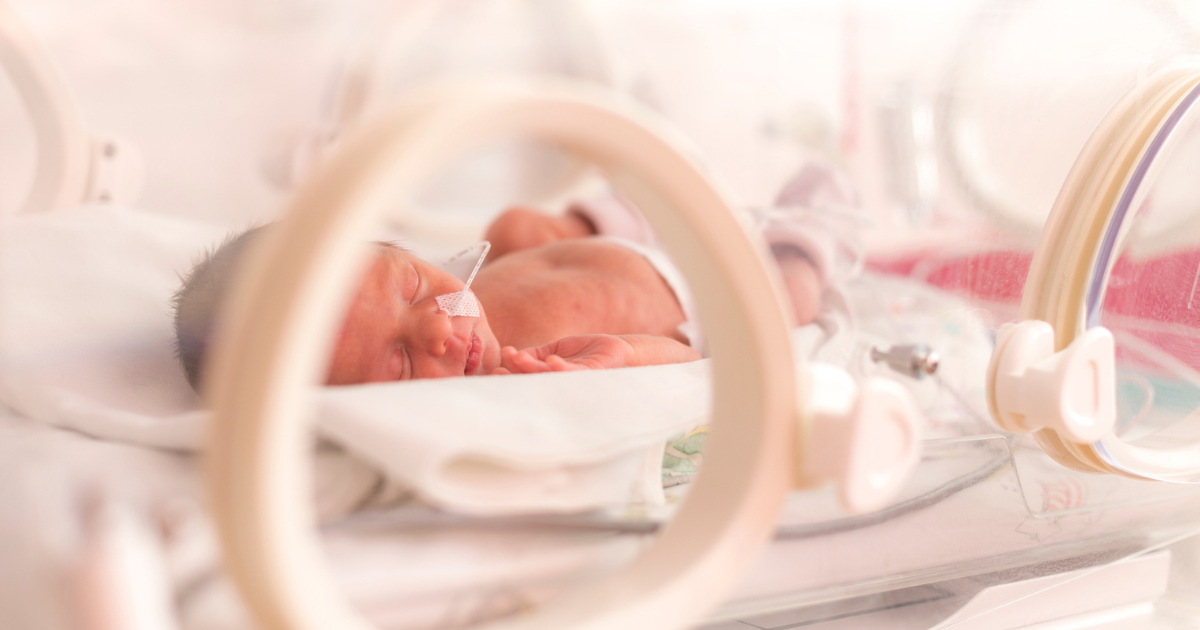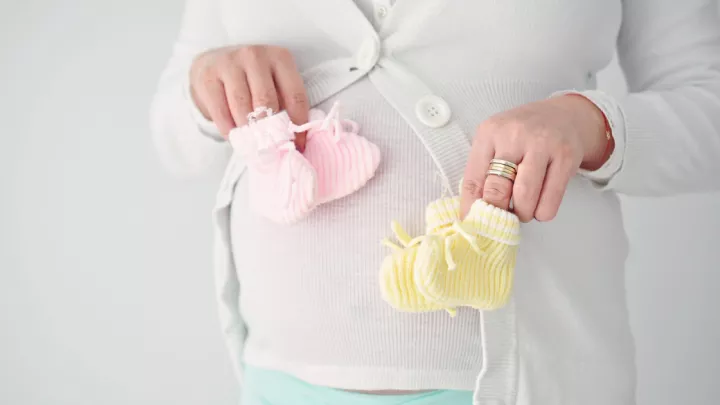6 reasons your baby may be admitted to the NICU

Bringing a new baby into the world is a time of joy and excitement. Still, for some families, it can also bring unexpected challenges.
Approximately 12% of babies are born before 37 weeks of gestation, and many of these premature infants, along with other newborns facing health issues, require specialized care in the Newborn Intensive Care Unit, or NICU.
Here are six common reasons a baby might be admitted to the NICU and what families can expect during this time.
1. Prematurity
Premature birth is one of the leading reasons for NICU admission. Babies born before 37 weeks often need extra support as they continue to develop outside the womb. These infants might require assistance with:
- Breathing: Underdeveloped lungs can lead to breathing difficulties.
- Regulating temperature: Premature babies have a harder time maintaining their body temperature.
- Feeding: They may need help with feeding until they can suck and swallow effectively on their own.
The length of NICU stay and the effect of prematurity on babies’ health varies widely, depending on how early babies are born, says neonatologist Nathan Gollehon, MD.
“Babies born just under the 37-week mark usually do well and have short hospital stays,” Dr. Gollehon says. “We also care for babies down to 22 weeks of gestation, and those babies have much more complex needs, and their stays are much longer. So, sometimes we have families in the unit with us for months before their babies are big and strong enough to go home.”
2. Breathing issues
Respiratory problems are common in newborns, particularly those born prematurely. Two primary breathing issues that may necessitate a NICU stay include:
- Respiratory distress syndrome: Often seen in premature babies, this occurs when the lungs are not fully developed and lack surfactant, a substance that helps keep the air sacs open.
- Transient tachypnea of the newborn: This condition is characterized by rapid breathing and usually resolves within a few days as the baby’s lungs clear out excess fluid.
3. Problems regulating blood sugar
Low blood sugar, or hypoglycemia, can be a concern for newborns, especially those who are premature or whose mothers have diabetes or gestational diabetes. Babies with hypoglycemia may need close monitoring and treatment to ensure their blood sugar levels remain stable.
“Having low blood sugar after birth can be scary if it goes untreated,” Dr. Gollehon says. “It can make babies really jittery and not feed well, and they can even have seizures if it is severe and goes untreated.”
4. Jaundice
Jaundice is a common condition in newborns, characterized by a yellowing of the skin and eyes. It occurs when a high level of bilirubin is in the baby’s blood.
“We don’t care as much about the yellow color, but if the bilirubin level gets really high, it can cause permanent injury to the brain,” Dr. Gollehon says. “When we bring them to the NICU, there is a special light therapy that helps them break down the bilirubin. It’s a very common reason for babies to come into the NICU.”
5. Infection
Newborns are vulnerable to infections, which can sometimes be serious. Infections may stem from conditions like chorioamnionitis, an infection of the placental tissues and amniotic fluid. Babies suspected of having an infection may need antibiotics and close monitoring in the NICU.
In the last few years, Nebraska Medicine neonatologists have worked to reduce the number of unnecessary NICU admissions for babies who do not actually have an infection, Dr. Gollehon says. He explains that doctors have more closely targeted babies who are at high risk of infection, reducing the admission rate by about 50%.
“We’re still bringing babies over that really need to be watched and given antibiotics, but we’ve done a good job of reducing unnecessarily separating babies from mothers after birth,” he says. “We know that keeping mom and baby together, if it’s safe, is the best thing to do.”
6. Congenital conditions
Some babies are born with congenital conditions that require immediate medical attention. These can include:
- Abdominal problems: Issues with the intestines or other abdominal organs.
- Heart conditions: Congenital heart defects may need specialized care and monitoring.
The importance of follow-up visits
After a baby is discharged from the NICU, follow-up visits are crucial to ensure they continue to grow and develop healthily. It’s important to see their primary care doctor within a few days of discharge.
When appropriate, infants discharged from the Nebraska Medicine NICU are scheduled for an appointment in a follow-up clinic where babies undergo rigorous developmental assessments. These allow doctors to identify any issues that might benefit from intervention, such as physical or occupational therapy.
“We’re able to give families reassurance if we see their babies are doing well, and if we’re seeing them struggle, we can get them connected to the services they need right away,” Dr. Gollehon says. “We know if we can get babies into therapies early, it will help them have better outcomes over time.”
Preparing for a NICU stay
If a parent knows before their baby is born that they may need NICU care, they are encouraged to meet with NICU providers and related specialists. This can help them understand what to expect and become more familiar with the unit and its providers.
“We really enjoy meeting with families so we can talk about some of those anticipated parts of the journey for babies that are going to be in the NICU with us,” Dr. Gollehon says.
Nebraska Medicine NICU services
The Nebraska Medicine NICU is a level 3 facility that provides complex care. The unit is supportive of breastfeeding and offers lactation consultants and nurses who are experienced in helping families with the extra challenges of feeding premature babies.
Nebraska Medicine also offers mental health screening and services to parents with babies in the NICU, recognizing the emotional toll this experience can take.
“We know that maternal depression after birth is a real phenomenon and something that many mothers struggle with,” Dr. Gollehon says. “We try to ensure those moms get the support they need after birth, and we ensure they are connected with additional resources when appropriate.”
While parents can stay with their baby in the NICU, there are also resources on-site and nearby for families to stay while their babies are hospitalized. Options include hoteling space at the Lied Transplant Center and nearby accommodations at the Ronald McDonald House.
While a NICU stay can be challenging, understanding the reasons behind it and knowing what to expect can help parents feel more prepared. The Nebraska Medicine NICU provides comprehensive care and support services designed to help families navigate this journey with confidence.







